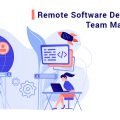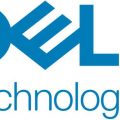Look around, and you will see that AI dominates the investment domain. The investment managers already know that technological change is on its way. According to a new Accenture study, close to 95% of the respondents were of the opinion that the asset manager’s data, technology, and the digital capacities can bring about a difference in 2025. The question is, how will this leap take place? In this article we will address this and many other questions, that will provide you with an in-depth perspective about the topic.
There have been challenges in implementing AI within financial services. A crucial reason for this is that finance gets considered proprietary compared to the technology domain. Also, the world’s financial AI leaders and experts are usually embedded in a single company for several years. It averts cross-collaboration along with an open-source mentality that is highly prevalent in various other domains.
Two issues in AI implementation – Insights by Cedar Smith Management
One more reason is that AI is challenging to implement correctly and comprises two issues. The first issue is all about getting a signal. And the second issue is all about knowing why, how, and when to use trust on the signal. It would help if you also understood what everything means concerning the trading strategy.
In one more report on a similar topic, it has been put forward that the asset managers need to start concentrating on the fast wins by saying yes to strategic partnerships and collaborations, which will clearly outline their AI strategy.
However, when implementing AI, the global asset managers have the accountability for crafting the correct balance of external assistance and in-house expertise. Doing this makes it essential to understand everything that is correct for their team clearly. Also, it will help them to know when is the right time to tune into any mutualized innovations.
The essential considerations to make
This article will focus on the three vital considerations you need to decide on all you can develop internally.
1. What are the real expenses and advantages for the firm?
Whether you select to have your current team for creating a proprietary software or even attempt for recruiting an expert team, the concept of in-house AI implementation in the investment strategy should not be cheap. Indeed, developing an in-house platform enables the investment firms to let go of the fees and the added expenses for the external software provider. But hiring tech professionals and developing a machine learning platform that is predictive for the capital markets can prove to be resource-intensive in terms of capital and hours.
When you face the labor shortage in the AI domain, the managers might get into issues willing to hire full-time employees to manage the software and adjust the real-time variables. To develop a machine learning product that works for the capital markets, the asset managers need to hire the AI experts and data scientists. All these people should have a finance background so that they can have a clear understanding of the financial data challenges.
However, it is highly possible. A few of the modern-day asset managers will have quantitative groups inside them for proving it. Despite this, the firms have an understanding about all that they can assign to the groups and where they can make the most of the platform technology. You can refer to Cedar Smith Management to know more about this.
2. What happens when you buy or build something that does not work?
One of the benefits of developing an AI platform and creating in-house financial algorithms is that you have to develop something tailor-made that caters to the team’s strategies, styles, and specifications. The AI for finance requires more specific work, and an increased management level will be a significant advantage.
But this can both be a curse and a blessing. If the specific machine learning software you have developed becomes a success, it’s the correct choice for you. However, the truth is that the software is not meant to work and is not guaranteed to drive returns. There are specific hazards that you will face when you are executing AI to asset management, comprising survivorship bias, non-stationarity of data, and broadly con-comparable data. Each of these situations will need a finance-specific solution that the in-house team should prepare to develop.
Several investment managers know that they wish to use AI but aren’t particular about how to get it done. And without a clear route for the completed product, the investment managers will run the risk of creating a product they are not content with.
Also, do you need to consider the consequences when the AI you execute, whether it’s bought or developed, doesn’t ensure returns? Where should you put a stop if the plan doesn’t work? Ideally, you can stop outsourcing at any time. You won’t get the money or time back when you develop something from scratch.
3. Who ensures that the implementation succeeds?
It is a fact that the fundamental AI transformation will arrive after executing the pre-existing AI technology. However, anyone trying to get the AI solution should ensure that the product they are using is specific to the domain. And the finance sector is the ruling zone.
It is essential for AI professionals in finance to have a clear understanding of algorithms and data science. They need to hire someone with doctorate-level AI know-how and a finance backdrop.
A probable advantage of using the in-house AI solution is that certain specifications should be managed quicker owing to the internal integration and faster communication time. Having said that, aligning the teams internally can also take less time than coordinating with the provider. That means, if an asset manager wishes to arrive at a quick decision, they might not have the luxury of reaching out to any external team. And regardless of the fact a company buys or builds, AI technology has become an essential tool for investors. And considering the observations mentioned above, the decision-making might not be very challenging.






